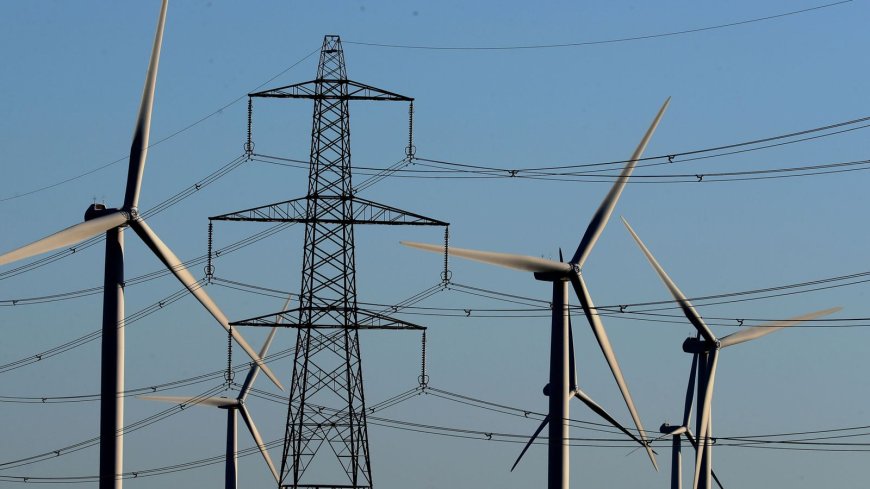Energy bills to increase as network charges rise due to easing price cap
Household energy bills are set to rise as network charges increase by £24 a year starting from April 2026. This rise is part of efforts to ensure energy security during the shift to green power. The regulator's plan includes a £24bn investment to upgrade power and gas networks for a sustainable future.

A major component within household energy bills is set to rise sharply from next year as part of efforts to maintain energy security during the transition to green power.
The industry regulator Ofgem's draft determination on how much it will allow network operators to charge energy suppliers from 1 April 2026 to 31 March 2031 would push up network costs within household bills by £24 a year. These charges currently account for 22% of the total bill.
The findings, which will be subject to consultation before a final determination by the end of the year, reflect demands on network operators to make power and gas networks fit for the future amid expansion in renewable and nuclear energy to meet net zero ambitions.
Ofgem says the plans it has given provisional approval for amount to a £24bn investment programme over the five year term - a fourfold increase on current levels. A total of 80 major projects includes upgrades to more than 2,700 miles of overhead power lines.
If rubber stamped as planned, the resulting network cost increases threaten further upwards pressure on bills from next April - a month that has now become synonymous with rising essential bills.
The watchdog revealed its plans as the 22 million British households on the energy price cap benefit from the first decline for a year. It is coming down from an annual average £1,849 between April and June to a July-September £1,720.
That's on the back of easing wholesale costs seen during the spring - before the temporary surge in wholesale gas prices caused by the recent instability in the Middle East. A new forecast released by industry specialist Cornwall Insight suggested that households were currently on track to see a further, but slight, decline when the cap is adjusted again in October.
At the current level it is 28% lower than at the height of the energy-led cost of living crisis but 10% higher than the same period last year. The price cap does not limit total bills because householders still pay for the amount of energy they consume.
Ofgem is continuing to recommend that consumers shop around for fixed rate deals in the market as they can offer savings compared to the price cap and shield homes from any price shocks seen within their fixed terms.
The regulator's chief executive, Jonathan Brearley, said: \"Britain's reliance on imported gas has left us at the mercy of volatile international gas prices which during the energy crisis would have caused bills to rise as high as £4000 for an average household without government support. Even today the price cap can move up or down by hundreds of pounds with little we can do about it. This record investment will deliver a homegrown energy system that is better for Britain and better for customers. It will ensure the system has greater resilience against shocks from volatile gas prices we don't control. These 80 projects are a long-term insurance policy against threats to Britain's energy security and the instability of prices. By bringing online dozens of homegrown, renewable generation sites and modernising our energy system to the one we will need in the future we can boost growth and give ourselves more control over prices too. Doing nothing is not an option and will cost consumers more - this is critical national infrastructure. The sooner we build the network we need, and invest to strengthen our resilience, the lower the cost for bill payers will be in the future.\"
According to the source: Sky News.
What's Your Reaction?
 Like
0
Like
0
 Dislike
0
Dislike
0
 Love
0
Love
0
 Funny
0
Funny
0
 Angry
0
Angry
0
 Sad
0
Sad
0
 Wow
0
Wow
0
















































































































































